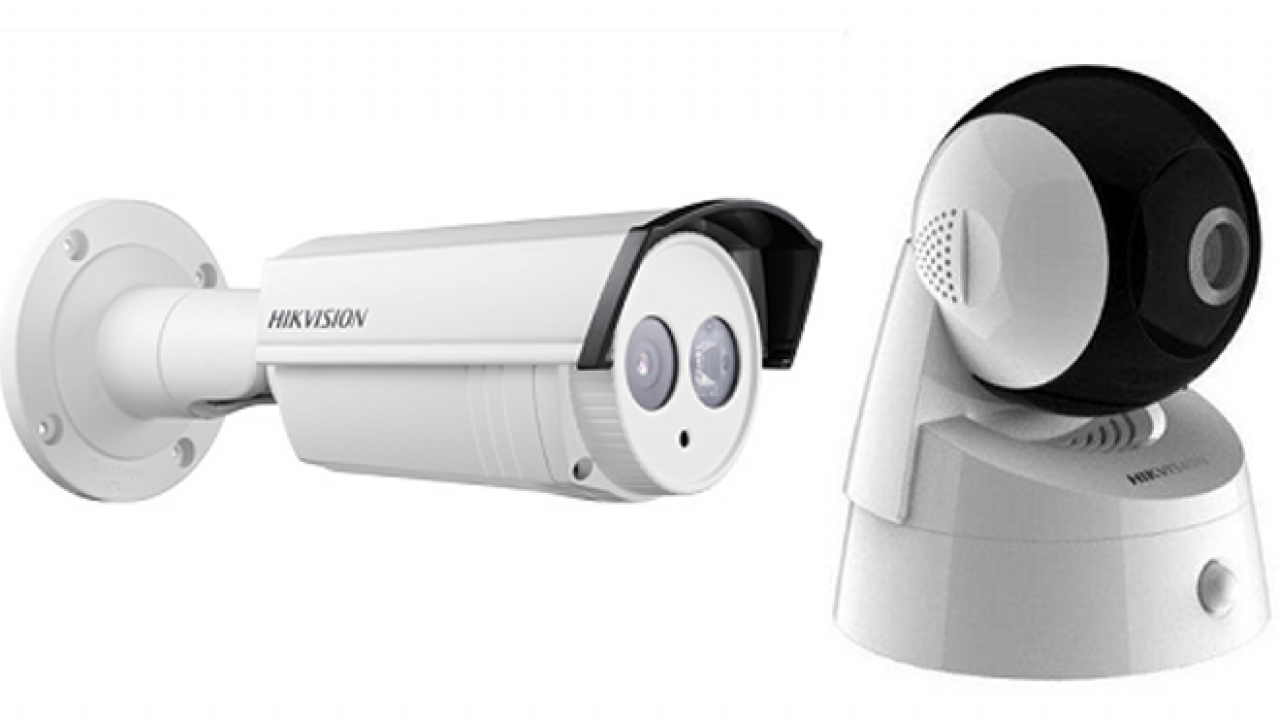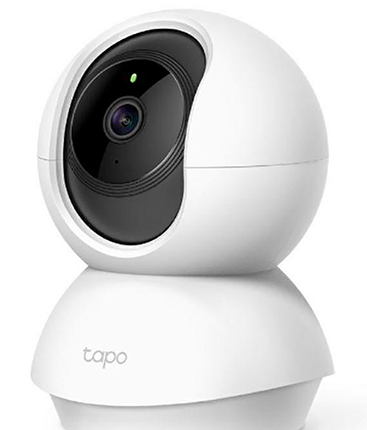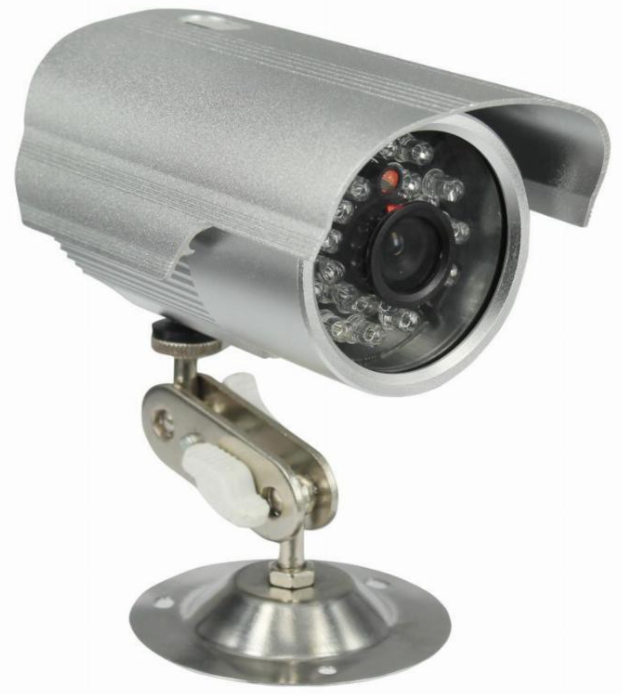Wired vs. Wireless Security Cameras – Which Is Right for Your Needs?

Protecting your home becomes even easier with the use of security cameras. They often act as an extra pair of eyes when you aren’t around, keeping track of all activity around your property.
Whether you opt for a wired or wireless option, installing security cameras can reap many benefits.
If you’re considering buying security cameras but aren’t sure which route to go, you’re in the right place. Here, we’ll walk you through the most notable features of both wired and wireless security cameras so that you can decide which works best for you.
What Is a Wireless Security Camera?
A wireless security camera is powered by an alternating current (AC) power and transmits the footage it captures over Wi-Fi. For this reason, wireless cameras are also referred to as Wi-Fi cameras.
Contrary to popular belief, a “wireless” camera gets its name due to its communication style, not how it is powered. It still needs to be plugged into an outlet to operate as opposed to a true “wire-free” camera. Still, a wireless camera requires fewer wires than its wired counterpart.
Some wireless security cameras use on-board batteries to supply power, typically through lithium-powered cells.
Security footage is typically stored on a cloud server, making it accessible from multiple devices via the internet. Wireless cameras are popular because you can view real-time or archived footage directly from your smartphone, laptop, or tablet.
Typical features of wireless cameras include night vision, two-way audio capabilities (allowing you to talk to who the camera sees), and motion detectors. Wire-free wireless cameras are also unique because they can be placed almost anywhere easily. This becomes helpful when some building codes limit the number of loose wires.

The Pros and Cons of a Wireless Camera
Pros:
- Straightforward installation
- Cloud storage
- Simple to add more cameras
- Easy operation
- Innovative software
- Virtual assistant compatibility (e.g., Alexa and Google Assistant)
Cons:
- Wi-Fi reliant
- Monthly cloud-storage fee
- Susceptible to hacking
Advantages of Wireless Security Cameras
One of the main selling points of wireless security cameras is that they are cheap to buy and easy to put together. Compared to their wired counterparts, wireless cameras require minimal installation. The most that you need to do is mount the camera to a wall or ceiling. Once you’ve done this, the camera simply needs to be plugged in and connected to a Wi-Fi network in order to start operating.
In addition, wireless cameras are relatively straightforward to navigate. By downloading the security camera’s app on your smartphone or tablet, you’ll be able to access footage both in real-time and anything you may have archived. Plus, you can adjust the settings on your wireless security camera from anywhere directly on the app.
Storing information from the camera onto the cloud is also very beneficial, as it lets you access your camera settings from any device if you have your cloud login details. Using a cloud-based storage system means that more video footage can be stored for longer than if a wired camera were being used.
Wireless cameras are full of advanced features that may not be available on a wired camera. For instance, some wireless cameras can use innovative technology to determine whether there is a person or an animal in your yard or on your front lawn. While most wireless cameras are set to always be recording, it’s possible to save power by setting the camera up to only start recording if any motion is detected.
If you’re renting a property and are planning on moving at some point, then wireless security cameras may be for you due to their easy installation.
Disadvantages of Wireless Security Cameras
One of the main disadvantages of a wired security camera is the additional costs involved. For instance, the subscription fee that comes with using cloud-based storage takes out a chunk from your wallet every month. Other features, such as person detection, may also require an extra fee.
These cameras also rely heavily on a strong Wi-Fi connection. If one is located too far from your router or your Wi-Fi connection is slow, this will negatively affect the quality of the footage produced on the cameras. You may experience glitches, lagging footage, and freezing. Typically, wireless systems can have a range of up to 150 feet or less.
Another disadvantage of wireless security cameras is that they are easier to detect by hackers. This is more likely to happen if the camera’s security is left on “default settings.” To protect yourself from digital snooping, it’s recommended that the camera you buy has its data encrypted. Plus, changing the camera’s name and password is crucial. The security system you are using should be supported by your internet network and not through anyone else’s.
What Is a Wired Security Camera?
When it comes to wired security cameras, there are two types for you to consider: DVR (digital video recorder) security systems and NVR (network video recorder) systems.
A DVR security system is the more traditional of the two. It transmits video and audio footage from several cameras directly to a central hub using a coaxial cable. On the other hand, an NVR system uses Ethernet cables to record footage and power the cameras being used. Additionally, NVRs are typically capable of recording footage of a higher standard than their DVR counterparts. Wired security cameras can be activated to record 24/7 and maintain a permanent internet connection, with footage accessible from remote locations via the cloud.

Pros and Cons of Wired Security Cameras
Pros:
- More reliable
- Consistent video and sound
- No monthly cloud-storage fee
- Impossible to hack
- Difficult to steal
Cons:
- Tedious installation
- Not portable
- Lengthy wiring
Advantages of Wired Security Cameras
There are many advantages to investing in a wired home security camera system. The main one is its reliability.
With a wired security camera, you don’t need to worry about a faulty Wi-Fi connection getting in the way. Additionally, if there is a network failure, it’s possible to keep everything running on battery backup. Wired security cameras are ideal for those who own large properties and have a large area to cover. As opposed to wireless cameras, wired cameras have a reliable signal over a larger space.
Plus, the quality of the footage tends to be higher as it isn’t susceptible to any bandwidth issues seen on wireless cameras. This is because wired cameras don’t need to send any information to the cloud. Wired cameras also don’t require any monthly storage fees for cloud services.
So long as the hub is secured properly, feed from the cameras should be consistently flowing without any issues. What’s more, wired security cameras are more difficult for anyone to steal due to all the wires involved.
Although wired cameras can be connected to the internet, the fact that they are fully operational locally only increases their security and reliability. If security and privacy are high on your list of importance, then a wired security system may be the way to go.
Disadvantages of Wired Security Cameras
The biggest disadvantage to getting wired security cameras is the installation process. Usually, a professional is hired to install the system properly and efficiently. Attempting to do this on your own can be time-consuming, as it requires fishing through many wires.
Another disadvantage to using wired security cameras is they do not come with as many features as a wireless camera would. For instance, you won’t be able to use virtual assistants, such as Google Assistant or Alexa. Also, features such as motion detection may not always be available.
If you find yourself living in an area that experiences regular blackouts, then wired security cameras may not be the best idea. This is because wired security cameras rely on a hardwired connection to work. So, if there is a power outage, this will also cut your security camera feed.
FAQs
What Is a Wire-Free Security Camera?
A wire-free security camera works by transmitting video and audio footage to a video receiver wirelessly. They are battery- or solar-powered and, due to this, their power supply can be limited. To conserve power, it’s best to set up a motion-detecting system where the camera records footage only when any signals are detected.
Do I Need Wi-Fi to Own a Wireless Home Security Camera System?
Although most wireless home security cameras rely on Wi-Fi to operate, there is the option to create your own local wireless network that doesn’t broadcast to the internet. That way, you can store footage directly on a camera and send it to the cloud using Wi-Fi only upon request. However, without any connection to the internet, any footage filmed on a wireless camera won’t be able to be viewed from outside the home.
How Long Do Wireless Security Camera Batteries Last?
Batteries used for wireless security cameras can last anywhere between one to three years.
What Can Get in the Way of Signal When Using Wireless?
Despite wireless technology coming a long way, it’s not uncommon for interruptions to occur within a system now and then. Brick, wood, and concrete constructions can often get in the way of an internet connection and, in turn, affect the performance of a security camera. Metal is also highly likely to obstruct a wireless signal.
Changes in weather can also affect the quality of the signal you receive. For instance, heavier rain or snow can result in distorted vision. In more extreme cases, if the weather’s temperature is lower than the system’s operating temperature, it can cause the camera to stop working altogether. Heavy rain can result in water damage to the security camera.
In addition to being blocked by weather and certain materials, a wireless signal can also be affected by competing signals in the area. To gain the best possible signal, it’s worth limiting the number of other devices located near the transmitters and receivers.
Where Is Footage From a Wireless Camera Saved?
There are two ways wireless security camera footage can be saved. One way is through the SD memory card that comes with the camera. Another way is through a corresponding network video recorder.
Should I Go Wireless if I Have Room for Wired Security Cameras?
No. Due to their overall reliability and stability, it’s best to go for a wired security system rather than a wireless one in the long run. Of course, there are instances when going wireless is convenient. However, wired cameras are ultimately more efficient if you have the means to install them.
Keeping Your Home Safe
Installing a working security camera can make all the difference when it comes to ensuring your home is safe. Both wireless and wired security cameras come with a list of pros and cons. Deciding which one to invest in ultimately comes down to personal preferences and individual situations.
Wireless cameras are easier to install but rely heavily on a strong Wi-Fi connection. On the other hand, wired cameras take longer to install but are usually more reliable in terms of operation.
If you’re planning on renting a property for a limited amount of time, then it may be a better option to get a wireless camera, as it’s portable and easy to re-install. However, if you are living on a larger property, then a wired camera would be the more advantageous option, as it’s able to cover a larger area.
Have you recently invested in a home security camera? If so, did you opt for a wireless or wired option? Why? Let us know more about your experience in the comments section below.




















